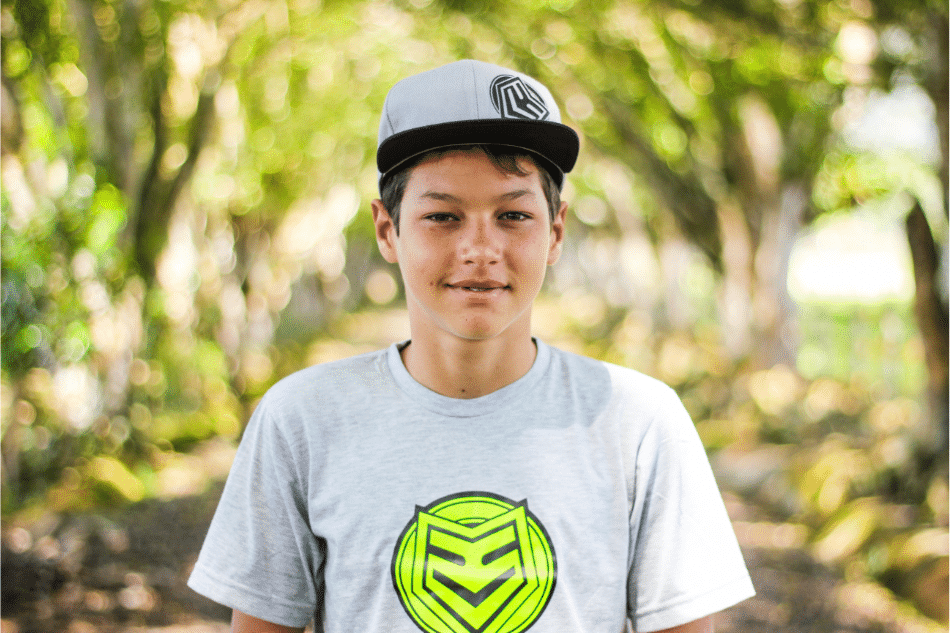Benefits of Depakote for Treating Adolescent Mental Health

An estimated one in five teens in the U.S. lives with a mental health condition.1 If you are one of these teens, finding the right treatment can seem daunting. There are so many choices – therapy, lifestyle changes, medication – that it can feel difficult to know where to start.
If you’ve seen a doctor already, that confusion may have grown even bigger. What medication should I take? What are the side effects? What are my other options? Don’t worry, we get it. The medical jargon is enough to mess with anyone’s head!
One medication your doctor may have mentioned is Depakote – also known by its generic name Valproate. It was originally created to manage epilepsy but is often used to treat a range of mental health symptoms – right from bipolar disorder and aggression to anxiety and mood instability.
As with any treatment, it’s important to understand the perks and pitfalls before you start taking it. So, on this page, we’ll spill the beans. You’ll find out how Depakote works, what it’s used for in teen mental health care, and what parents and teens should know about its side effects. Plus, we’ll answer some of your most-asked questions.
So, whether you’re exploring treatment options or are just curious about how it works, this guide is here to help you understand Depakote a little better.

Depakote for Teenagers
Let’s start with the basics: What is Depakote, how does it work, and what is it used for?
What Is Depakote?
Depakote is the brand name for a mood stabilizer and an anticonvulsant drug called Valproate. It can be used to treat mood disorders, such as manic episodes in bipolar disorder, as well as seizures and migraines.2
How Does Depakote Work?
Your brain constantly sends messages to help control everything from your mood to your energy levels. These messages are sent using chemicals called neurotransmitters. Sometimes, the signals your brain sends can be off-balance, and this can lead to mood swings, aggression, or even seizures.
Valproate can help to rebalance things. It increases a particular chemical in the brain called GABA, which helps to calm down brain overactivity. This can bring down extreme mood changes and agitation, and even prevent seizures. It’s like turning down the volume on a very loud speaker – it reduces the ‘noise’ in your brain so that you aren’t so overwhelmed by your emotions or thoughts.
When Is Valproate Used?
Valproate has been FDA-approved for the treatment of manic episodes of bipolar disorder, seizures, and migraine headaches in adults.3 This means that Valproate has been through research and testing, and the U.S. Food and Drug Administration (FDA) is satisfied that it is safe and effective for use in these conditions.
Valproate can also be prescribed ‘off label’ for use in teens for a range of conditions. Off-label typically means that the drug has been researched and tested, but the manufacturer may not have sought FDA approval for all uses of it because it can be a very expensive and lengthy process. This is often the case for Valproate.
Let’s take a look at why a teen may be prescribed Valproate.
Teen Mental Health Treatment With Valproate
Depakote is not necessarily a cure or an instant fix, but for many teens, it can be a helpful part of managing their mental health and feeling more in control, especially when combined with therapy and positive lifestyle changes. Up next, we’re going to dive into some of the common reasons you may be prescribed Valproate as a teenager.
Depakote for Treating Bipolar Disorder in Teens
Depakote is FDA-approved for treating adults with bipolar disorder, especially the episodes of mania. However, it may be prescribed off-label for use in teens, too. Studies show that around 4% of people under 18 years of age have bipolar disorder, and the recommended treatment is a combination of psychotherapy and medication.4
Medications that work best for manic and mixed mood states are lithium or atypical antipsychotics like Risperidone or Aripiprazole, according to the American Academy of Child and Adolescent Psychiatry. However, Valproate for mood regulation in teens can be helpful if those first-line medications aren’t successful.5 It can help treat manic episodes, and doctors may also suggest using Depakote for adolescent depression episodes of bipolar disorder.6
Depakote for Treating Seizures in Adolescents
Depakote is used to treat certain seizures in adults and teens with epilepsy. It can be used on its own to treat complex partial seizures – a type of seizure that makes you feel “out of it” or confused – and absence seizures, where your brain effectively hits pause for a moment. Valproate can also be used alongside other medications to treat other types of seizures.7
Valproate for Treating Teen Aggression
Valproate is sometimes used for treating aggression and impulsivity in adolescents.5 It can be effective in controlling and reducing aggression and agitation, especially in teens with explosive temper. Studies also show that it is effective in treating impulse control in youth with conduct disorder and that using Valproate for ADHD in adolescents can reduce aggression.8
Depakote for Anxiety in Teens
Valproate Dosage for Adolescents
Valproate usually comes in tablet form, to be taken a few times a day. The dosage you will start on will usually be the lowest available so that your body and brain can get used to this foreign drug being in your system. Your doctor can then increase your dose over time until you get the maximum benefit, if necessary.
Your doctor will decide what dose to start you on as there isn’t guidance on the dose for teens for individual conditions. However, as a rough guide, here are the typical doses for conditions in adults:3
Mania: Initial dose is 750 mg daily
- Complex Partial Seizures: Start at 10 to 15 mg/kg per day
- Absence Seizures: Start at 15 mg/kg per day
- Migraines: Start at 250 mg twice daily
Just a quick (but important) note: It’s vital to attend medical appointments when taking Valproate so that your doctor can monitor you to ensure Depakote is working for you.
Valproate Side Effects in Teenagers
Something that can put people off trying a new medication is the side effects. Side effects are the uncomfortable, temporary, unintended results that can come from taking medication. However, not everyone gets every side effect, and some people don’t get any at all.
Nevertheless, it’s good to know what to expect, just in case. So, let’s run through them. The common side effects of Depakote include:3
Sleepiness
- Dizziness
- Problems with coordination
- Ringing in your ears
- Blurriness or double-vision
- Unusual eye movement
- Hair loss
- Swelling of your arms and legs
- Appetite changes
- Weight changes
- Nausea
- Stomach problems
- Flu-like symptoms (headaches, aches, feeling weak)
Don’t like the sounds of those? We get it. Seeing a list of side effects can feel overwhelming. However, remember that side effects are just a possibility – not a guarantee. One that can be particularly worrying is Depakote and weight gain in teenagers, as there’s often a lot of pressure in teenage years to look a certain way.
It’s true – there is a link between Depakote and appetite changes in teens, and whether it increases or reduces your appetite can affect whether you gain or lose weight. It’s important to let your doctor know about any side effects you do get, as they may be able to offer advice on managing them.
One side effect people often don’t mind is sleepiness, especially if you’ve had problems sleeping because of your condition. It can be one of the positive side effects of Depakote on sleep in teenagers. However, drowsiness can also cause some problems, especially if you’re still feeling that way in the morning.
In addition to the common side effects already mentioned, Depakote has black box warnings, which are serious warnings from the FDA about medication effects that can be dangerous. These warnings for Depakote relate to risks of liver damage, pancreatitis, and fetal harm.7
When considering taking Valproate, it’s important to remember that your doctor will have prescribed it to you because they will have weighed up the risks against the benefits and think it will help you, so make sure to tell your doctor about any side effects you do get. They may be able to suggest ways to make them easier for you until you can feel the maximum benefit of the medication. They can also adjust the dosage to see if it helps, or can look at different treatment options altogether.
Stopping Depakote Safely in Teens
Mood swings, anxiety, and irritability- Feeling flu-like (headaches, aches and pains, coughs and colds)
- Dizziness
- Stomach problems
- Liver problems
- Anaemia
- Pancreatitis
- Memory problems
- Sight problems
- Sleeping issues
- Weight gain
- Muscle spasms and shaking
These withdrawal effects can sound pretty nasty, which is why it’s absolutely vital to work with your doctor’s guidance when stopping this medication. They can come up with a plan for you to stop taking your medication in the safest, most comfortable way possible.
Frequently Asked Questions About Depakote
Here are some of the top questions people have about Depakote, and the answers that will help you decide if this medication may be the right one for you.
What Are the Benefits of Taking Depakote?
Depakote can help stabilize your mood, especially if you live with bipolar disorder. It can help manage symptoms and is used to treat seizures and migraines as well.
Does Depakote Help With Behavior?
Yes, Depakote can help reduce and manage aggression and impulsivity in teens.
How Long Does It Take Depakote to Stabilize Mood?
Does Depakote Affect Appetite?
One of the side effects of taking Valproate is that it can sometimes affect your appetite, and as a knock-on effect, it may therefore cause weight changes.
Will Depakote Change My Personality?
It can alter your mood and behavior, as is the main goal if you are taking this for bipolar disorder. However, it doesn’t directly change your personality.
What if It Doesn’t Work for Me?
There are many other options available, including other medications, therapy, and lifestyle changes to help manage your condition. Take a look at our page on mood stabilizers here for more information.
Begin Your Recovery Journey Today
Getting to grips with a new mental health diagnosis can feel like an uphill struggle, and there are so many treatment choices: medication, therapy, and holistic options. Valproate can be essential for stabilizing your mood, but medication is only one part of the treatment. We know that therapy and lifestyle changes can help the process and let you lead your best life. That’s where we come in.
At Mission Prep, we specialize in working with teens and their families. We understand that mental health affects everyone differently and that you deserve to have this reflected in your treatment. That’s why we create a personalized plan designed to treat your symptoms and help you achieve your mental health goals. Whether you are looking for therapy, medication management, or family support, we offer a range of treatment programs including:
- Inpatient Programs: For highly structured 24/7 support and therapeutic interventions.
- Outpatient Programs: Allowing you to receive treatment while continuing school and home life.
- Intensive Outpatient Programs: A middle ground with structured support and therapy but without the overnight stays.
We know the cost of mental health treatment can be a concern, which is why we offer a variety of payment options to suit your situation, including insurance, private pay options, financing plans, and sliding scale fees based on financial need. Click here for more details.
Are you ready to take the next step? Contact us today to find out how we can support you on the road to recovery.

References
- Sappenfield, O., Alberto, C., Minnaert, J., Donney, J., Lebrun-Harris, L., & Ghandour, R. (2024, October 1). Adolescent mental and behavioral health, 2023. National Survey of Children’s Health Data Briefs – NCBI Bookshelf. https://www.ncbi.nlm.nih.gov/books/NBK608531/
- Rahman, M., Awosika, A. O., & Nguyen, H. (2024, March 19). Valproic acid. StatPearls – NCBI Bookshelf. https://www.ncbi.nlm.nih.gov/books/NBK559112/
- U.S. Food and Drug Administration. (2025). Highlights of prescribing information: Depakote (divalproex sodium). https://www.accessdata.fda.gov/drugsatfda_docs/label/2025/018723s070lbl.pdf
- Abrams, Z. (n.d.). Treating bipolar disorder in kids and teens. Monitor on Psychology. American Psychological Association. https://www.apa.org/monitor/2020/10/ce-corner-bipolar
- American Academy of Child and Adolescent Psychiatry. (n.d.). Parents’ medication guides. https://www.aacap.org/AACAP/Families_and_Youth/Family_Resources/Parents_Medication_Guides.aspx
- Whelchel R. S., BSN. (2022, July 25). Can Depakote help with depression? Psych Central. https://psychcentral.com/depression/the-lowdown-on-depakote
- Wilkerson, P., PharmD. (2023, April 19). All about Depakote. Healthline. https://www.healthline.com/health/drugs/depakote
- Munshi, K. R., Oken, T., Guild, D. J., Trivedi, H. K., Wang, B. C., Ducharme, P., & Gonzalez-Heydrich, J. (2010). The use of antiepileptic drugs (AEDs) for the treatment of pediatric aggression and mood disorders. Pharmaceuticals, 3(9), 2986–3004. https://doi.org/10.3390/ph3092986
- Baetz, M., & Bowen, R. C. (1998). Efficacy of divalproex sodium in patients with panic disorder and mood instability who have not responded to conventional therapy. The Canadian Journal of Psychiatry, 43(1), 73–77. https://doi.org/10.1177/070674379804300109
- Mind. (n.d.). Coming off mood stabilisers. https://www.mind.org.uk/information-support/drugs-and-treatments/lithium-and-other-mood-stabilisers/coming-off-mood-stabilisers/
- YoungMinds. (n.d.). Valproate | Mood stabiliser for mania. https://www.youngminds.org.uk/young-person/medications/valproate/













